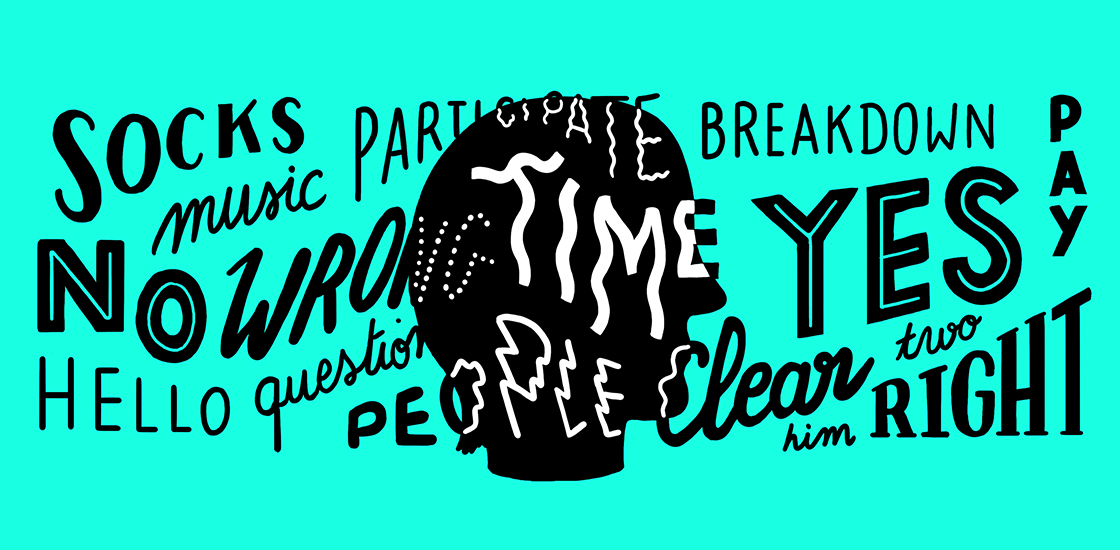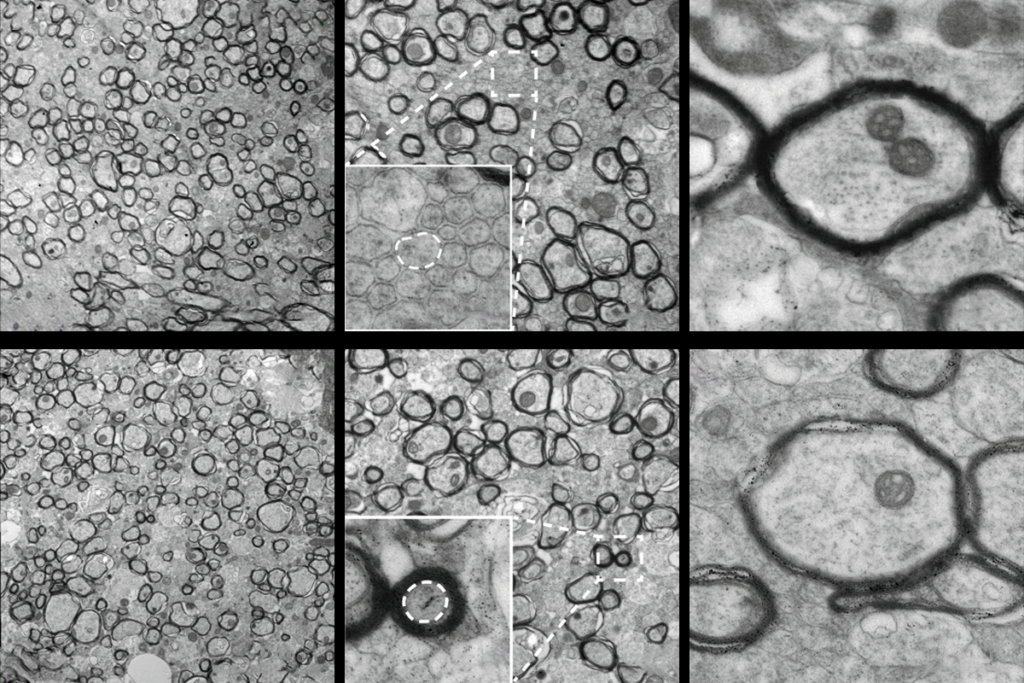Specific language impairment
Recent articles
Test gauges autistic children’s verbal abilities in natural settings
An interactive assessment allows clinicians and researchers to evaluate an autistic child's use of language in everyday social situations.

Test gauges autistic children’s verbal abilities in natural settings
An interactive assessment allows clinicians and researchers to evaluate an autistic child's use of language in everyday social situations.
Social communication in autism, explained
Communication problems have always been considered a core feature of autism. Yet there are substantial and wide-ranging differences in how people with autism communicate.

Social communication in autism, explained
Communication problems have always been considered a core feature of autism. Yet there are substantial and wide-ranging differences in how people with autism communicate.
Where communication breaks down for people with autism
People on the spectrum often have subtle problems using language or making facial expressions. Pinpointing where those difficulties originate may help ease their social communication.

Where communication breaks down for people with autism
People on the spectrum often have subtle problems using language or making facial expressions. Pinpointing where those difficulties originate may help ease their social communication.
Why no one needs a diagnosis of ‘social communication disorder’
A diagnosis of social communication disorder only keeps people from a community and resources they desperately want and need.

Why no one needs a diagnosis of ‘social communication disorder’
A diagnosis of social communication disorder only keeps people from a community and resources they desperately want and need.
Should scientists study mothers of children with autism?
Studying parents of children with autism has long been controversial, but that doesn’t mean scientists should avoid it.

Should scientists study mothers of children with autism?
Studying parents of children with autism has long been controversial, but that doesn’t mean scientists should avoid it.
Powerful memory system may compensate for autism’s deficits
A brain system called declarative memory may help people learn scripts and strategies that alleviate autism symptoms, say Michael Ullman and Mariel Pullman.

Powerful memory system may compensate for autism’s deficits
A brain system called declarative memory may help people learn scripts and strategies that alleviate autism symptoms, say Michael Ullman and Mariel Pullman.
Toddlers with autism show few symptoms during brief exams
Many toddlers with autism display so few abnormal behaviors during short doctor visits that they may evade the diagnostic eye of even expert clinicians.

Toddlers with autism show few symptoms during brief exams
Many toddlers with autism display so few abnormal behaviors during short doctor visits that they may evade the diagnostic eye of even expert clinicians.
Social language lapses hint at syndrome distinct from autism
Some siblings of children with autism have social language impairments that may signal another, more controversial disorder.

Social language lapses hint at syndrome distinct from autism
Some siblings of children with autism have social language impairments that may signal another, more controversial disorder.
Scaled-down device detects brain activity in children
A new device designed to conduct magneto-electroencephalography in children younger than 3 years is ideal for detecting early signs of autism, researchers reported 3 March in Frontiers in Human Neuroscience.

Scaled-down device detects brain activity in children
A new device designed to conduct magneto-electroencephalography in children younger than 3 years is ideal for detecting early signs of autism, researchers reported 3 March in Frontiers in Human Neuroscience.
Loss of language gene enhances pitch discrimination in mice
Mice lacking the autism-linked gene CNTNAP2 process sounds more slowly than control mice do but are better at discriminating between tones. The unpublished research was presented Tuesday at the 2013 Society for Neuroscience annual meeting in San Diego.

Loss of language gene enhances pitch discrimination in mice
Mice lacking the autism-linked gene CNTNAP2 process sounds more slowly than control mice do but are better at discriminating between tones. The unpublished research was presented Tuesday at the 2013 Society for Neuroscience annual meeting in San Diego.
Explore more from The Transmitter
Oligodendrocytes need mechanical cues to myelinate axons correctly
Without the mechanosensor TMEM63A, the cells cannot deposit the appropriate amount of insulation, according to a new study.

Oligodendrocytes need mechanical cues to myelinate axons correctly
Without the mechanosensor TMEM63A, the cells cannot deposit the appropriate amount of insulation, according to a new study.
Modern AI is simply no match for the complexity likely required for harboring consciousness, says Jaan Aru
He argues that our brain’s computations are of a completely different nature than any artificial intelligence because they take place across many spatial and temporal scales and are inextricably entwined with biological materials.
Modern AI is simply no match for the complexity likely required for harboring consciousness, says Jaan Aru
He argues that our brain’s computations are of a completely different nature than any artificial intelligence because they take place across many spatial and temporal scales and are inextricably entwined with biological materials.
Interneurons’ role in epilepsy, and more
Here is a roundup of autism-related news and research spotted around the web for the week of 9 February.

Interneurons’ role in epilepsy, and more
Here is a roundup of autism-related news and research spotted around the web for the week of 9 February.